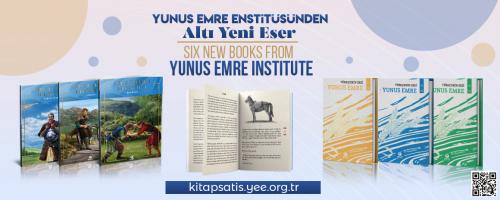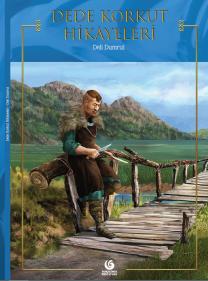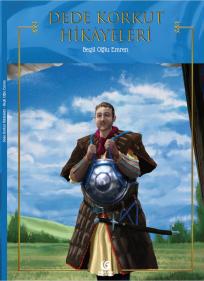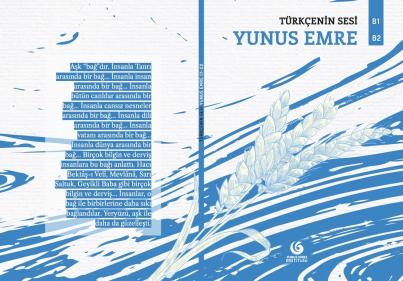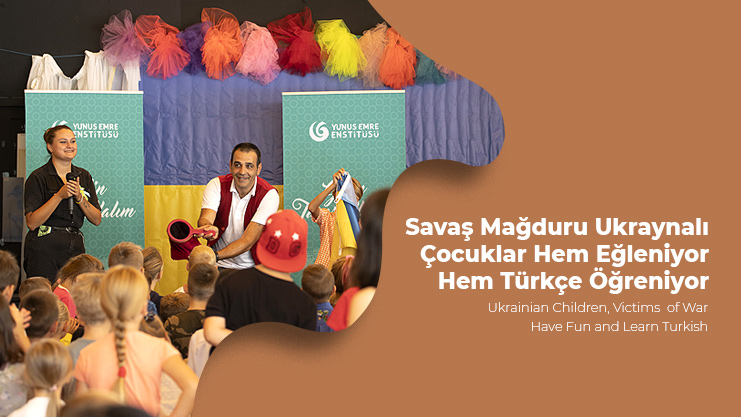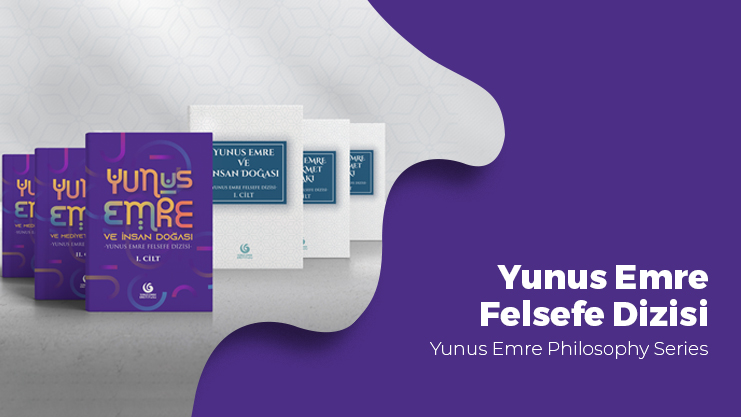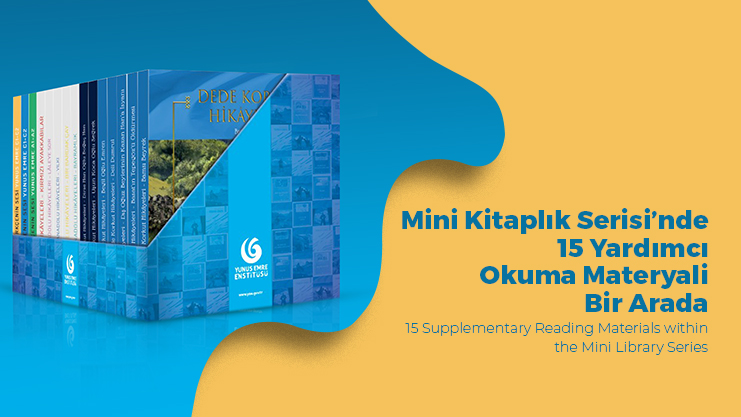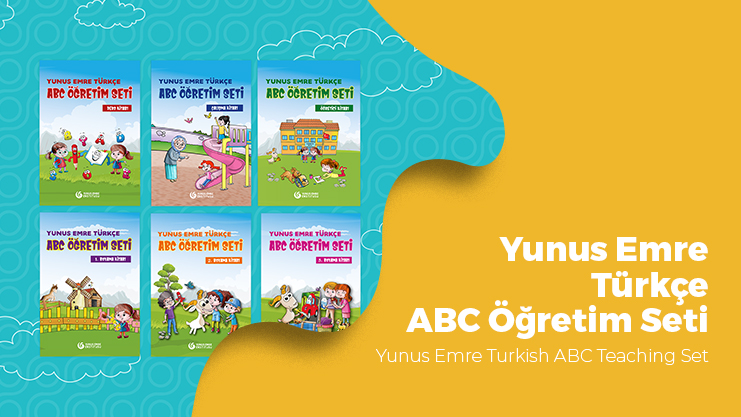Six New Works from Yunus Emre Institute
Yunus Emre Institute has published six new books for Turkish learners. Having added 3 new books to the Dede Korkut Stories that it had previously published, Institute adapted "Türkçenin Sesi Yunus Emre" to basic, intermediate and advanced levels and presented it to the readers.
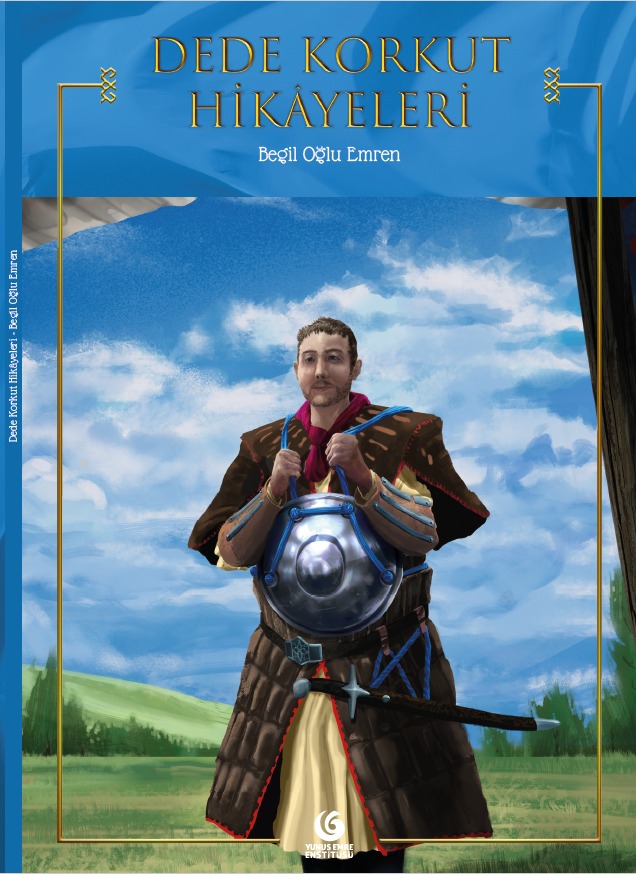
Delivering language teaching activities in Turkish as a foreign language in different geographies of the world through cultural centers abroad, Yunus Emre Institute has recently added a new item to its Turkish teaching materials. In line with the "Common European Framework of Reference for Languages" and the principles of teaching Turkish as a foreign language, our Institute offers its experience to practitioners by preparing the basic and supplementary materials needed by different target groups in the process of learning Turkish, and has continued its work without interruptions during the pandemic.
METICULOUSLY PREPARED
Expressing his views on Dede Korkut Stories, Prof. Şeref ATEŞ, President of Yunus Emre Institute, said, “During the pandemic, three more Dede Korkut Stories were prepared at B1 and B2 levels by our Institute's experts under the guidance of Prof. Yavuz Kartallıoğlu, Turkish Teaching and Turcology Director at Yunus Emre Institute, to respond to the need for supplementary reading materials for adults learning Turkish as a foreign/second language. In the adaptation phase, besides the transcribed and simplified texts prepared by Orhan Şaik GÖKYAY and Muharrem ERGİN respectively in order to preserve the originality and poetry of the stories, texts simplified by various authors and academicians were compared and analyzed. While Dede Korkut Stories were being prepared for publication, the meanings of the words not used in contemporary Turkish were checked from the Turkish Language Institution's Great Turkish Dictionary, Screening Dictionary, Proverbs and Idioms Dictionary, Kubbealtı Dictionary, and TEBDİZ (Contextual Index and Functional Dictionary for Historical and Literary Texts). After identifying the most appropriate meanings according to the original text, the words in question were replaced with the words currently in use. However, idioms and proverbs, which are a richness of the texts, were kept within the texts in order not to cause loss of meaning but were explained in footnotes in accordance with the level. The visuals in the story books, which were prepared with great care, were also depicted in an original and historical manner. Finally, besides the reading comprehension questions for the stories, activities related to the linguistic structures and vocabulary in the text were included."
Prof. Şeref Ateş also noted the following:
Dr. Fuad Köprülü: "If you put all Turkish literature in one pan of the scale and Dede Korkut in the other, Dede Korkut will still outweigh." |
"As you know, in December 2018, a new copy of the Book of Dede Korkut, which is originally named 'Dede Korkut Ala Lisan-i Taife-i Oğuz Han', comprises twelve stories and is described by Prof. Muharrem Ergin in the quote 'It is a work of the joint genius and taste of the Turkish nation,' and by Prof. Fuad Köprülü, a great scholar of the history of Turkish literature, in the quote 'If you put all Turkish literature in one pan of the scale and Dede Korkut in the other, Dede Korkut will still outweigh,' was found. It was published under various titles by Yusuf Azmun (Dede Korkut's Third Manuscript - Soylama and Turkmen Sahra Manuscript with Two New Stories), Prof. Metin Ekici (Turkistan / Turkmen Sahra Copy of the Book of Dede Korkut and the 13th Story - How Salur Kazan Killed the Seven-Headed Dragon), Nasir Shahguli, Veliyullah Yakubi, Shahruz Ak Atabay and Dr. Sara Behzad (The Günbed Manuscript of the Book of Dede Korkut: Analysis, Text, Index and Facsimile)."
ANOTHER FIRST IN THE STORY TÜRKÇENİN SESİ YUNUS EMRE
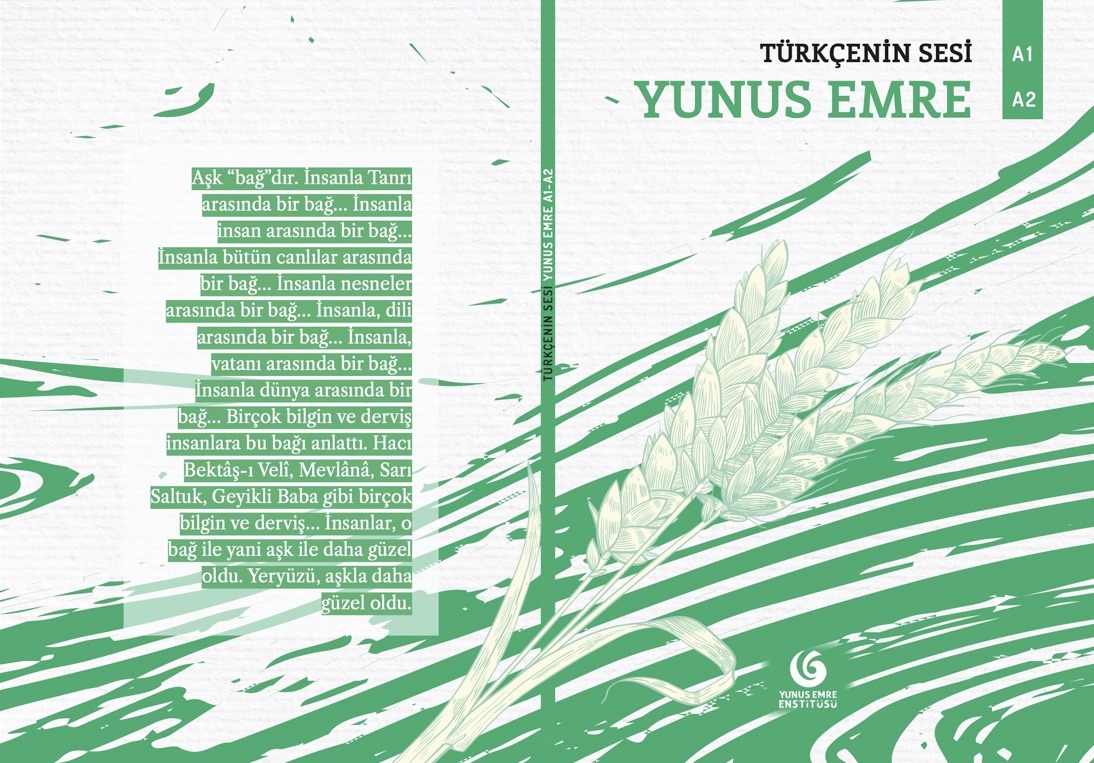
Yunus Emre Institute has made many innovations in material production based on its experience from the field, and now presents another work to the service of those who learn Turkish as a foreign language. A new addition has been made to the available supplementary reading materials in the stories of “Türkçenin Sesi Yunus Emre” (Yunus Emre: The Voice of Turkish), which depict the epic life of Yunus Emre, one of the pioneers of Turkish poetry. Adapted for three different levels by combining the literary discourse of Turkish with the life and thoughts of the great Anatolian Sufi Yunus Emre, this story marks a first regarding the supplementary reading materials.
These books emphasize the importance of “breath” during the pandemic period when the awareness that health is a precious treasure has increased, and tell the story of Yunus Emre from his days as a farmer and then a dervish. Our Institute adopts as part of its philosophy the awe-inspiring lines by Yunus Emre, as he says, "I did not come here for the cause, I am only here to love, a heart makes a good home for the Friend, I've come to build some hearts," and tries to make hearts all over the world. Our Institute also aims to establish deep bonds with learners of all levels who learn Turkish as a foreign language and to tell the students about the divine love journey of one of our immortal poets, Yunus.
You can access the basic, intermediate and advanced level versions of Türkçenin Sesi Yunus Emre books at kitapsatis.yee.org.tr.

